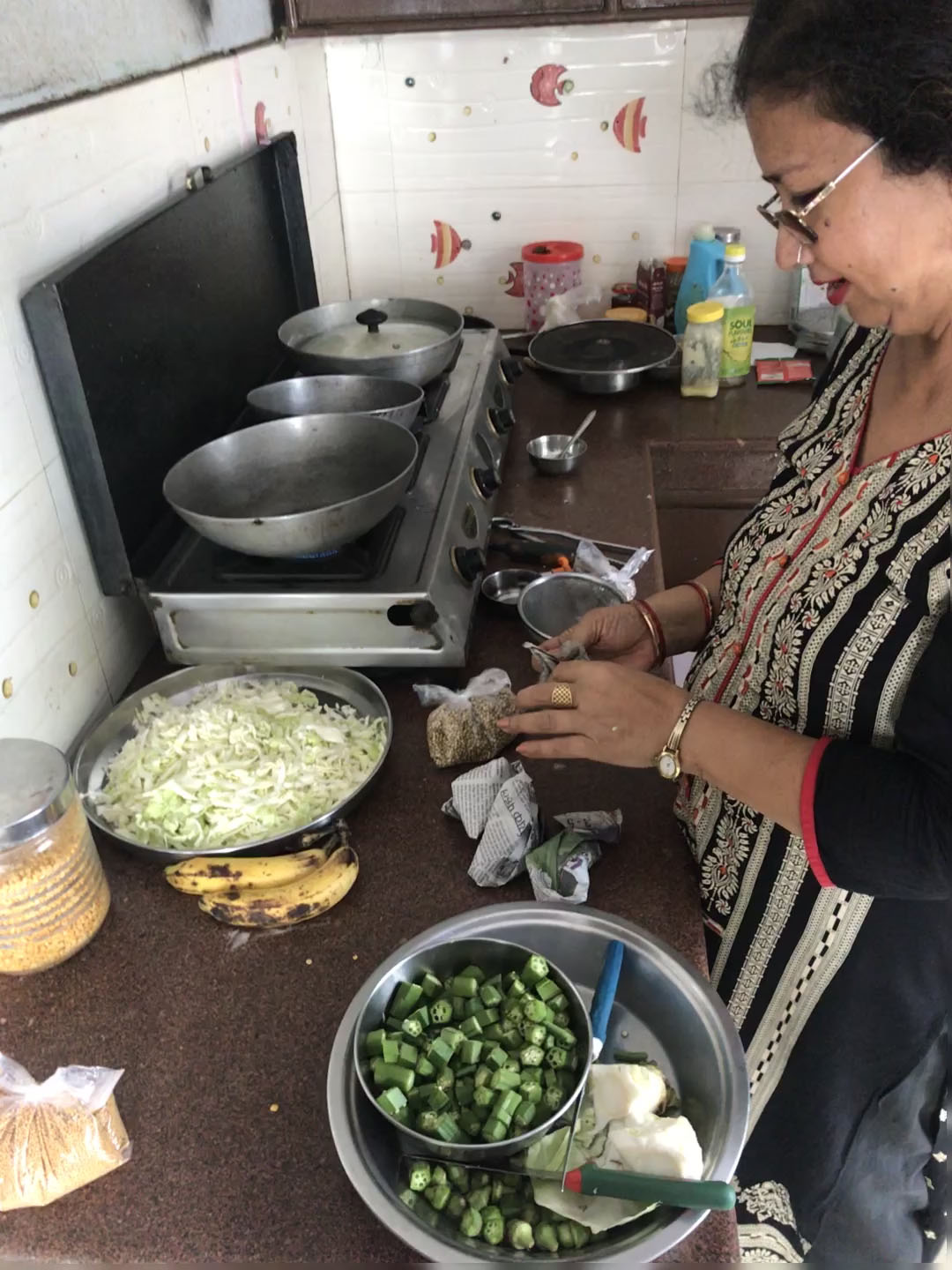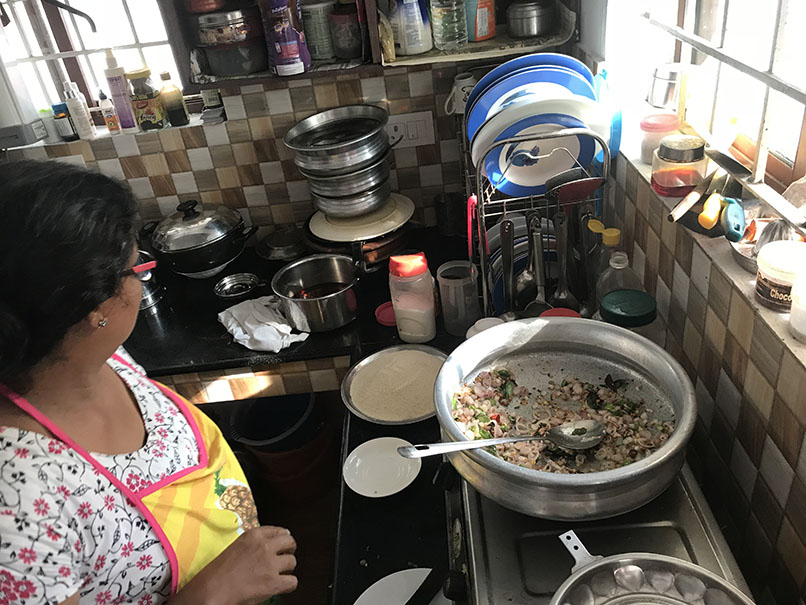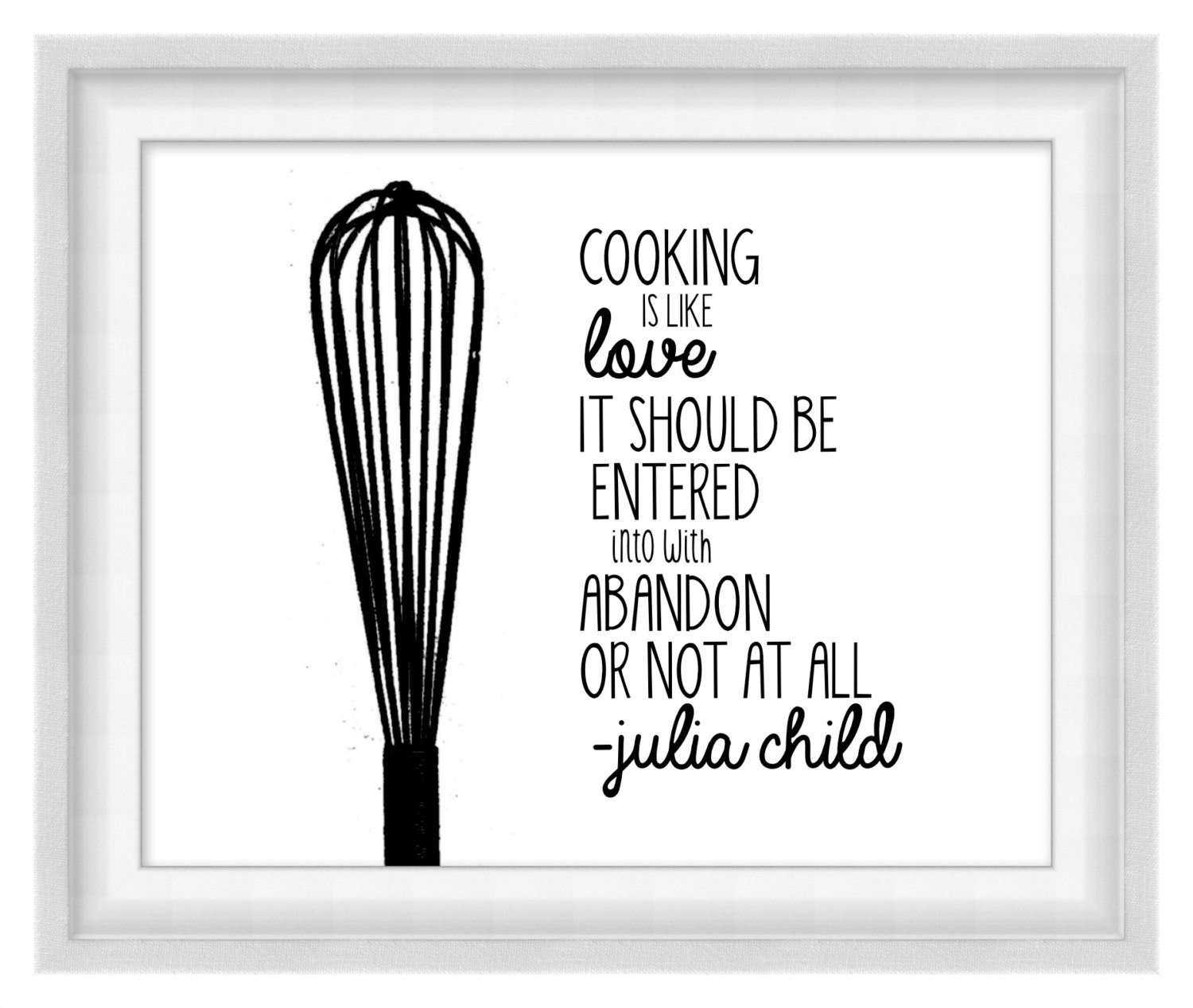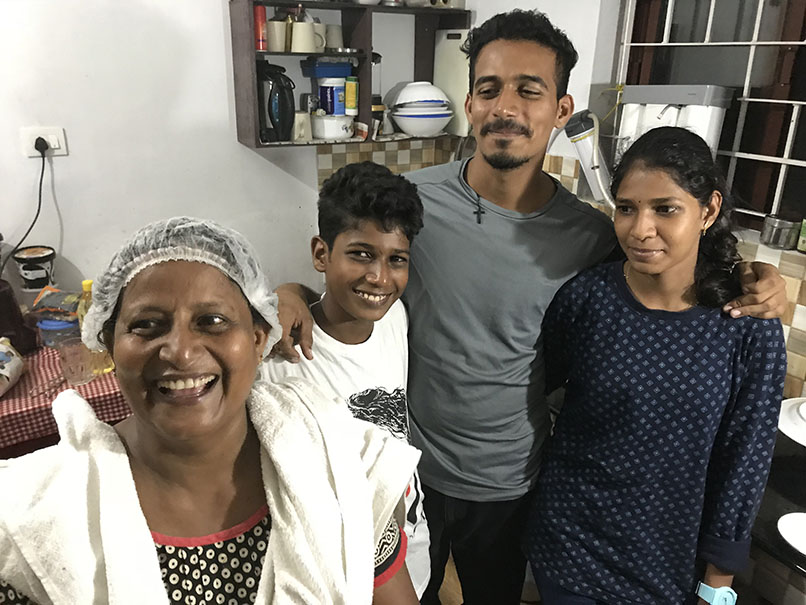 One of the main intentions I had in coming to India on sabbatical was to see, feel and experience how one pot cooking feeds the sense of belonging to those that are participating in the planning, preparation, cooking and eating. What was revealed to me right away were some of the family values that promoted nourishment of the family and all those surrounding the planning, food sourcing, preparation and cooking of the meals. When I say “family”, it’s not limited to the traditional definition of family, it can be the attendees at an ashram or people residing at home-stays or anyone who is eating the food that is prepared at the same location and maybe even delivered to somebodies business for lunches.
One of the main intentions I had in coming to India on sabbatical was to see, feel and experience how one pot cooking feeds the sense of belonging to those that are participating in the planning, preparation, cooking and eating. What was revealed to me right away were some of the family values that promoted nourishment of the family and all those surrounding the planning, food sourcing, preparation and cooking of the meals. When I say “family”, it’s not limited to the traditional definition of family, it can be the attendees at an ashram or people residing at home-stays or anyone who is eating the food that is prepared at the same location and maybe even delivered to somebodies business for lunches.
 One thing that fell into place immediately were the conditions and layout of the kitchens. Hot water, refrigeration and ovens are considered a luxury here and not a necessity like in the USA. Almost all of the kitchens I’ve been in had no hot water and about half of them had refrigeration. The standard setup in the kitchens are a 2-burner stove, some counter space, shelving storage and a sink. It is almost like camping except you have running water. Not drinking water… but good enough to boil to cook with and wash things with antibacterial soap. There really isn’t much of a choice other than to do “one pot” cooking. One pot, rice… One pot, dal… one pot, curry and/or vegetable. It really is that simple.
One thing that fell into place immediately were the conditions and layout of the kitchens. Hot water, refrigeration and ovens are considered a luxury here and not a necessity like in the USA. Almost all of the kitchens I’ve been in had no hot water and about half of them had refrigeration. The standard setup in the kitchens are a 2-burner stove, some counter space, shelving storage and a sink. It is almost like camping except you have running water. Not drinking water… but good enough to boil to cook with and wash things with antibacterial soap. There really isn’t much of a choice other than to do “one pot” cooking. One pot, rice… One pot, dal… one pot, curry and/or vegetable. It really is that simple.
 In the first day of my culinary basics class I ask my students “What is the sign of a good cook?”. There are a lot of wonderful answers and the one I tell them is… a good cook makes due with what they have and can create a wonderful meal that everyone enjoys. Here in India… my answer is made most real to me where ever I have gone. One of the things that has amazed me is how people don’t think they are really lacking anything and are happy with what they have. And I’ve eaten really tasty and incredible meals in conditions where most Americans would see the kitchens lacking good equipment, ingredients and a clean environment.
In the first day of my culinary basics class I ask my students “What is the sign of a good cook?”. There are a lot of wonderful answers and the one I tell them is… a good cook makes due with what they have and can create a wonderful meal that everyone enjoys. Here in India… my answer is made most real to me where ever I have gone. One of the things that has amazed me is how people don’t think they are really lacking anything and are happy with what they have. And I’ve eaten really tasty and incredible meals in conditions where most Americans would see the kitchens lacking good equipment, ingredients and a clean environment.
 One of the main ingredients that we put into our cooking is the passion and love in our hearts. We realize what we are doing is nourishing the people we care for and love and it’s what we have a passion doing. Love is the one one major key ingredient in our cooking which drives us to extend the care we have for others. When we think we are lacking something in our lives and are craving for something different to happen we are not accepting what is. When something in our lives is happening that we aren’t liking or haven’t planned that we have an aversion to we are not in acceptance of what is. When we practice and develop our sense of peacefulness and acceptance to what is in our lives we can put that love into our cooking. Otherwise we are going through the motions and blindly living our lives. When love is made an essential ingredient and is put into our cooking everyone knows it and can feel it. The “love” we put into our cooking also shows in the quality of the products we choose to use and the amount of processing and additives in those products. The Indians here have this more figured out than what I’ve experienced in the USA (and the USA is by far a wealthier country). For instance, here in India you can choose to buy whole wheat flour from a place that produces it in bulk or you can purchase it from a place that buys the wheat from a reputable farm and grinds it themselves. Hence, your choices have a great impact in the final outcome. Don’t get me wrong… there are plenty of places here where this kind of practice isn’t considered in peoples’ thoughts and practices of nourishing people. And I’m fortunate enough that I’ve somehow landed in homes where love is the main ingredient on these multiple of levels. Are you getting this?
One of the main ingredients that we put into our cooking is the passion and love in our hearts. We realize what we are doing is nourishing the people we care for and love and it’s what we have a passion doing. Love is the one one major key ingredient in our cooking which drives us to extend the care we have for others. When we think we are lacking something in our lives and are craving for something different to happen we are not accepting what is. When something in our lives is happening that we aren’t liking or haven’t planned that we have an aversion to we are not in acceptance of what is. When we practice and develop our sense of peacefulness and acceptance to what is in our lives we can put that love into our cooking. Otherwise we are going through the motions and blindly living our lives. When love is made an essential ingredient and is put into our cooking everyone knows it and can feel it. The “love” we put into our cooking also shows in the quality of the products we choose to use and the amount of processing and additives in those products. The Indians here have this more figured out than what I’ve experienced in the USA (and the USA is by far a wealthier country). For instance, here in India you can choose to buy whole wheat flour from a place that produces it in bulk or you can purchase it from a place that buys the wheat from a reputable farm and grinds it themselves. Hence, your choices have a great impact in the final outcome. Don’t get me wrong… there are plenty of places here where this kind of practice isn’t considered in peoples’ thoughts and practices of nourishing people. And I’m fortunate enough that I’ve somehow landed in homes where love is the main ingredient on these multiple of levels. Are you getting this?
 Just about all the recipes I have learned are of “one pot” nature. There are other snacks and sweets that I have learned that require more labor and different cooking methods. My focus has been on one pot cooking and how it creates a sense of belonging. Other ways I’m looking at how this way of meal preparation creates “belonging” are
Just about all the recipes I have learned are of “one pot” nature. There are other snacks and sweets that I have learned that require more labor and different cooking methods. My focus has been on one pot cooking and how it creates a sense of belonging. Other ways I’m looking at how this way of meal preparation creates “belonging” are
- Grounding in our lives to live the most fulfilled and purposeful existence through the support system of where/how food nourishment is prepared
- Creating a sense of connection to each other, to god/universe/source and to the earth.
- Developing a sense of community and developing relationships thorough a common purpose (cooking, eating, nourishment) to all those participating around the central focus area of the kitchen… farmers, producers, preparation, cooks and eating
- Tending to the well-being of each other through a common purpose and goal.
- Finding the most life-giving ways to engage with each other, the land and the bounty of the earth.
Are you ready to put this into practice?
I think all I mentioned above is a simple practice in theory and within the culture of the USA I think it is challenging to implement. We are so used to eating on the run, consuming processed and fast foods and dining at restaurants. We are more interested in growing our bank accounts, consuming stuff that we think will bring us comfort, meaning to our lives and some sort of satisfaction with our lives. Or maybe we feel like competing to be the best in what we think that getting a better job will bring us that happiness we think we deserve. I think we have lost a lot of those family values which support our sense of belonging in our families, business and in ourselves. It’s these shared values that will consistently bring people together around food preparation and gather around the table in support of the whole.
 I realize that not everyone like to be in the kitchen however, relationships are cultivated and supported inside and outside of the kitchen when we choose to purchase foods from certain businesses, farmers and processors. In India, many family businesses are handed down from generation to generation and the business relationships that have emerged from these businesses continue to be supported and cultivated by the children and their children’s children.
I realize that not everyone like to be in the kitchen however, relationships are cultivated and supported inside and outside of the kitchen when we choose to purchase foods from certain businesses, farmers and processors. In India, many family businesses are handed down from generation to generation and the business relationships that have emerged from these businesses continue to be supported and cultivated by the children and their children’s children.
On a side note, don’t we need to start instilling these values in our children at a young age? I’ve often wondered, what if children participated in cooking meals with the family and at school instead of only sitting in the classroom and taking quiz after quiz and test after test how that might help build the skills they need to be successful in life. After getting a tour of the Portland, Maine public school kitchens and seeing how most of the food that is being consumed is highly processed I became sad. Sad because parents want the schools to provide more scratch cooked choices to our children but they aren’t taking the steps at home to lead by example. Take a look what they do with children in Japan here.

We continue to nourish ourselves in the traditional sense by choosing the proper healthy foods to eat, and how we care for and cultivate our own peace of mind and acceptance of what is in our lives, while at the same time we get nourished by the relationships with the people we choose to surround ourselves by… who we choose to buy our foods from, who we participate in cooking with, by giving open kindheartedly to those who have less than we do, and sharing together the beautiful meals we crafted together around the dinner table. You are all invited!

Leave a Reply